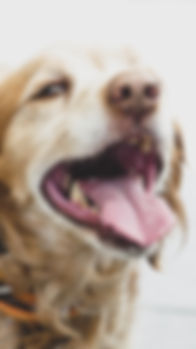(559) 492-3355

Dog and Cat Dental Care
Dental care is very important to all pet's general health. Beside having smelly breath, a dirty mouth can cause multiple heath hazards. Make sure to have your pet's mouth, teeth and gums examined yearly by a veterinarian.
Why do pets need a Dental Cleaning?
Plaque is a transparent build up around the teeth, that occurs naturally over time in all animals. Plaque is made up of 80% bacteria. Plaque accumulates on the teeth, becoming mineralized and hardened by salivary salts. This now transforms plaque into calculus (tartar). Plaque then continues to build up on calculus. Brushing your pet's teeth at home with a toothbrush can be considered the most effective method to remove plaque, but it cannot remove calculus. Once calculus is formed it must be removed professionally by performing a complete dental prophylaxis. Plaque and calculus builds up not only on the visible part of the tooth, but underneath the gum line. Since plaque is made of mostly bacteria, that means that there is now source of bacteria growth under the gum line- which is the fastest way to enter the bloodstream. Having a regular dental cleaning can reduce the build up of plaque and calculus, and promote a healthier pet.


Health Hazards
Bacteria from plaque and tartar build up can be absorbed into the blood stream and deposited in various organs including the heart and the kidneys, causing infection.
Some disease cause by lack of dental care include;
-
Periodontal Disease
-
Liver Disease
-
Heart Disease
-
Kidney Failure
-
Systemic Infection
-
Oral Nasal Fistulas
Pre-anesthetic bloodwork can help to ensure your pet's health and give insight to the condition of internal organs and check for infections.

Signs your pet needs a dental cleaning
Your pet’s teeth and gums should be examined by a veterinarian at least once a year to catch any early signs of dental disease.
Bring your pet in for exam sooner if you notice any of the following problems:
-
Bad breath
-
Broken or loose teeth
-
Extra teeth or retained baby teeth
-
Teeth that are discolored or covered in tartar
-
Difficulty chewing
-
Drooling
-
Reduced appetite or refusal to eat
-
Pain in or around the mouth
-
Bleeding from the mouth
-
Swelling in the areas surrounding the mouth or eye
Some pets become irritable when they have dental problems, and any changes in your pet’s behavior should prompt a visit to your veterinarian. Always be careful when evaluating your pet’s mouth, because a painful animal may bite.

At Home Care
Brushing your pet's teeth at home can help reduce the build of of plaque, and should be done on a regular basis. Only use pet formulated toothpaste for your pets, human grade toothpaste and baking soda can be toxic to pets.
Other ways to keep your pet's mouth clean include;
-
Mouth rinse / sprays
-
Dental chews (choose appropriate size for your pet)
-
Water additives
-
Dry dog food (the crunch helps breakup plaque and tartar)

70-80% of pets develop a dental disease by the age of 3

Plaque (bacteria) can build up on teeth within 24 hours after a professional cleaning

Small breed dogs are more prone to have dental issues, and require professional cleanings more often

Dogs typically have 28 baby teeth (deciduous teeth) and cats have 26. Their adult teeth start to come in around 3-6 months. Dogs have 42 adult teeth and cats have 30

The mouth is the 4th most common spot for tumorous growths



